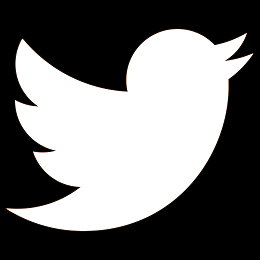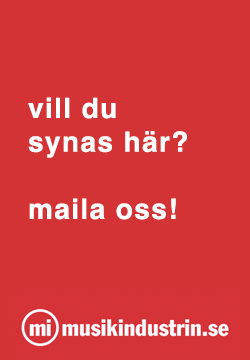Daniel Johansson begins 2023 by looking into the future, and states that the biggest changes for the music industry are probably still ahead of us.
Holidays were a little different for me this year. Despite three vaccinations, I had a tough version of covid-19. Hence a somewhat delayed New Year’s column, which will be more of a forward-looking kind of thing.
If there is something that will shape 2023, it is news and discussions about how AI affects the field of music as well as other areas of culture.
In 2022, a light probably went on for anyone who didn’t really understand the power of AI before, when OpenAI released ChatGPT version 3, and image generators like Midjourney, DALL·E 2 and Stable Diffusion reached new artistic heights.
(The image for the article is autogenerated on Stable Diffusion with ”human robot in a concert with guitar”)
Although some may perceive that it as happening ”over a night”, this is of course a gradual development that has been going on for many years, not least in the area of music.
Over the past ten years, with each passing year we’ve seen a marked improvement in how software can auto-generate music, something I’ve written about many times before here on Musikindustrin.se.
But it is now AI is really starting to happen.
Google reacts when people switch to asking ChatGPT instead of googling for their recipes, illnesses, tips, questions and concerns. Reduced search volume naturally means reduced revenue.
The entire global school world is in a state of flux about how to manage and identify unique high-quality academic text created through OpenAI. At my own institution we have already started to introduce more unaided classroom exams as a result.
The developer world is asking if programmers will now become redundant, ChatGPT is better than most programmers at solving advanced coding tasks, as well as many other professions where AI could arguably be much faster and better than us humans at solving tasks.
At the various educations I am connected to, I have had lectures for quite some time about how AI will change the music industry. If by any chance there are old students reading this: It’s happening now! Now do exactly as we have said! 🙂
OpenAI Jukebox showed the way a few years ago, something I wrote about here on MI in 2020: https://openai.com/blog/jukebox/
A good example is how OpenAI generates Nirvana songs:
Generating songs in the style of Nirvana (OpenAI Jukebox)
A few weeks ago, www.riffusion.com was released, which, like Midjourney’s and Stable Diffusion’s image generation, autogenerates music. Although the quality is currently limited, it shows where we will likely be in just a few years (given the same pace of development as we have seen in images and text).
Try, for example: ”Create a Zara Larsson jazzy song with church bells and piano”, or enter an artist name, or genre, or anything else.
Background music and music for films, commercials, YouTube, etc. will be radically affected when, with a few simple commands, we can auto-generate high-quality music based on different genres and artists. Instead of choosing the ”Soft Dinner Music” playlist, my order for a future iteration of Riffusion might be:
”Create an endless loop of new soft jazz songs that sounds like Bo Kasper’s Orkester, but with Fred Astaire vocals, and Amy Winehouse and Monica Zetterlund in the background.”
Or, using OpenAI Jukebox:
”Create 50 new Pearl Jam tracks with an ABBA disco beat and Max Martin production sound”.
In October 2022, the American industry organization RIAA issued a warning about the new generation of AI tools. They then wrote, among other things, following:
”There are online services that, purportedly using artificial intelligence (AI), extract, or rather, copy, the vocals, instrumentals, or some portion of the instrumentals from a sound recording, and/or generate, master or remix a recording to be very similar to or almost as good as reference tracks by selected, well known sound recording artists.”
The level of AI-created deepfake music has improved enormously in just a couple of years. Here are a couple of examples:
The level of music created for the AI version of Eurovision is high quality:
– Eurovision 2020 AI song contest champion: Beautiful The World
And then my favorite:
– A Eurovision song created by Artificial Intelligence: Blue Jeans and Bloody Tears
Music is a great area for anyone working in AI development. It is mathematical, structured and follows a certain number of rules. When it is now also possible to synthesize singing voices, which can sound just like Elvis Presley or Whitney Houston or Freddie Mercury, we will probably see thousands of new songs released with their, and all other artists’, voices. Or rather, AI technology will be able to create our personal soundtracks, with the voices or sound of our favorite artists, but AI creating the music.
How will this affect the music industry?
Naturally, demands for updated copyright legislation will intensify.
Today, you do not have copyright on the sound of your voice, after all, copyright mainly covers melody, text, originality in the music itself, and your voice is not a result of human creativity that resulted in something artistic, rather a combination of genes and training. And that cannot be protected under copyright or patent law.
Jay-Z tried to get deepfakes removed from YouTube, but failed, because deepfakes are not copyright infringement.
Or? Is there a need to extend protection for expressions that are unique?
I think this is a much bigger issue than just music. It is about the biggest shift humans have gone through in a long time, probably bigger than what the entire digital information technology has meant so far, and will require much bigger legal updates than just for copyright.
The shift will affect how we look at creativity in general, what is uniquely human, and I think the human self-image will get a real thorn in the road. What we previously declared genius, adored and worshipped, may well fade away when AI becomes better than us at most things.
”Create a 24 hour long guitar solo in the style of Yngwie Malmsteen”
I stick my chin out and say the same thing I’ve said many times before: AI will of course become better than humans at creating music, literature, art, films, etc. It’s just a matter of time.
I look forward to Midjourney Movies in 2033, when I can write:
”Generate five 94 minute long science fiction movies based on the book Perelandra with Stellan Skarsgård, Tom Cruise and Ingrid Bergman as the main actors. Include elements of outer space, technology from the 1900s, and a bottle of whiskey. Include my Google Chrome history of all science articles I have read.”
BUT, just because our devices get better than us at doing things, doesn’t mean we stop doing them. Just because computers have been better than us at chess for over 25 years, we haven’t stopped playing chess. Just because AI is better than us at creating abstract art, doesn’t mean we stop painting and drawing.
Same thing with music.
Just because AI will be able to create millions and millions of new high-quality songs, doesn’t mean we will stop creating music, or stop valuing human-made music.
For some areas, however, AI will gain enormous importance. For production music, synchronization, background music, we already see how AI challenges, with services such as AIVA, Endel, Amper Music, Google’s AudioLM, Riffusion, OpenAI Jukebox and others. When these tools get good enough to match the quality of the text that ChatGPT generates, well then we’ll probably have direct competitors to the functional music and playlists on streaming services.
Of course, there is a potentially really bleak possible scenario, in the long term, that AI technology could cause the cultural artifact ”recorded music” itself to lose value.
If I mainly use music in the background while cleaning, cooking dinner, meditating, running, partying, or other normal human activities, it’s entirely possible that the free AI tools of the future will directly compete with current streaming services.
Why should I pay €10 a month to Spotify, when I can get high-quality background music from an AI app for free? With my favorite artists and my favorite genres in lots of new music that suits me perfectly, and that is adapted to different circumstances such as e.g. Björk’s AI project together with Microsoft?
Here, I think it is hugely important that the music industry and the existing streaming platforms already start reviewing what business models and protections should look like for these kinds of services and products, and not try to stop the development. It goes without saying that in a decade or so we should have AI generation of personalized music integrated into the streaming services, much like an extra radio function.
It was the scientists, engineers and geeks who developed the foundations for the digital distribution of music, which created the possibility of file sharing and digital consumption. One can only hope that the industry has learned from that history, and instead of trying to stop the development, make sure to include the functions of the established copyright economy as quickly as possible.
Eventually, I am convinced that we will find a balance in the interplay between AI and human creativity, especially when technology grows together with us physiologically in a few decades.
But at first I still think it will be a kind of ”war”, like we had in the early 2000s around illegal file sharing. We will see new AI tools and platforms that will be sued and challenged by the industry, while the legislation will slowly but surely adapt with new regulations.
2023 could very well be the beginning of this ”war”.
It is only when the applications are in place, such as e.g. ChatGPT and Midjourney, as society and people begin to understand, feel threatened, and adapt.
Isn’t it therefore time for the government to immediately rake the arena through a new investigations that looks at how AI affects the cultural industries and copyright?
I think so.
Until then, you can enjoy some AI music that I collected on a YouTube playlist: Songs Created by AI (Artificial Intelligence)
Happy New Year!
Daniel Johansson
daniel@musikindustrin.se








